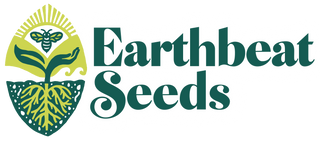*sustainably harvested from cultivated plants*
White Sage, also known as Bee Sage or Sacred Sage, is a fragrant woody perennial with silver-white leaves. Unlike other low-growing sages, this herb can grow up to five feet tall. Native to Southern California and Northwestern Mexico, this plant is deeply rooted in the cultures and traditions of Indigenous communities of this region. Its earthy, peppery flavor is both a staple in culinary preparations by Native peoples, as well as ritual burning and traditional Indigenous medicine practices. The plant has a history of use for respiratory conditions, as well as to purify the air. White Sage is drought resistant, and thrives in dry heat. Salvia apiana is a cornerstone plant for pollinators, predominantly larger bees such as the carpenter bee. Small mammals also enjoy nibbling this plant’s foliage and seeds.
Harmful human interactions with this plant have put it at great risk— development, drought, and wildfire are a threat to White Sage, and unsustainable harvest practices for sale as smudge sticks only make matters worse. This has become a peril not only to the plant, but to traditional Indigenous foodways and culture. Poaching great quantities of Sage plants has become popular for mass sale, with their intended use as a cleansing and calming agent. While these properties hold true, the plant has been exploited by extractive practices largely by and for white folks, and many Indigenous leaders are calling this trade a continuation of cultural genocide. Sanctifying a space by burning Sage has taken on a pan-Native American symbolism of resilience and unity, making cultural appropriation of this practice all the more offensive. These seeds have been harvested ethically from cultivated plants. Growing your own White Sage from ethically harvested seeds is the best way to have access to this sacred plant and not become complicit in the destruction of its wild growth and cultural import.






